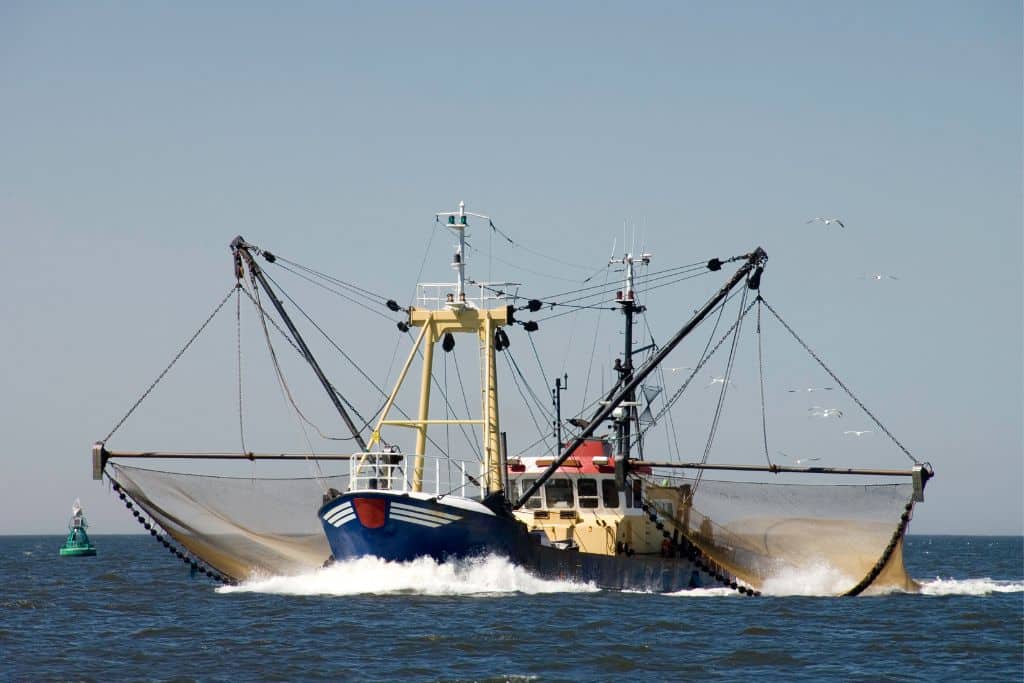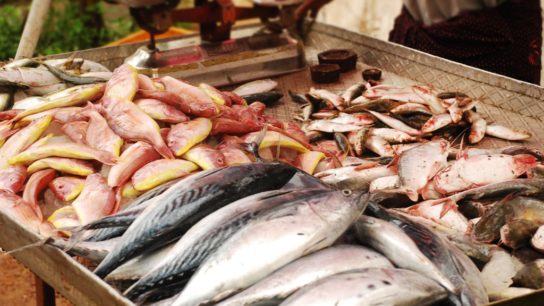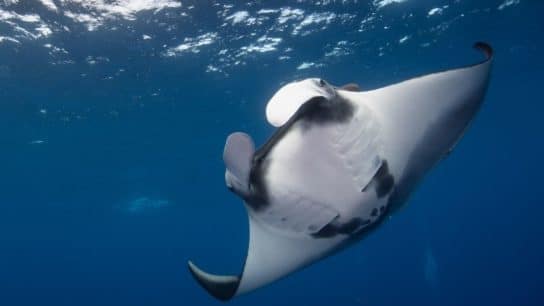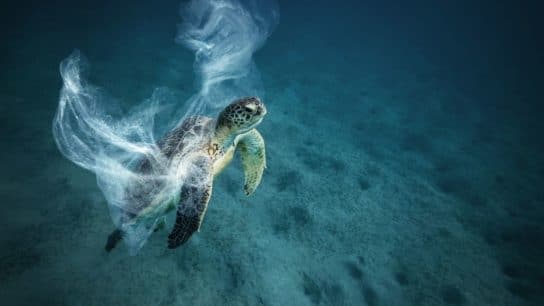Illegal fishing has emerged as a significant transnational organized crime, conducted in all fishing jurisdictions. Asia is one of the regions in the world most seriously affected by this environmental crime, which has thrived unabated for the past two decades. This situation has caused serious damage to the environment and ecosystems, while endangering the food security and livelihoods of local populations and leading to numerous crimes and human rights violations.
—
Understanding Illegal Fishing and Its Scale
Illegal, unreported and unregulated fishing (IUUF) encompasses various criminal fishing activities and occurs in fisheries of all types and sizes, both on national waters and high seas. Illegal fishing is defined as fishing activities violating local or international laws. It can involve fishing without a license or permit, in restricted areas, using prohibited equipment, exceeding quotas, or targeting prohibited species. Unreported fishing includes fishing activities that are not or improperly reported to authorities, while unregulated fishing refers to fishing vessels not subject to any regulations, fishing in areas lacking management measures, operating under no nationality, or from countries that have not joined the Regional Fisheries Management Organisations (RFMO).
IUUF is a pervasive environmental crime responsible for one out of every five wild-caught marine fish. It is also a highly lucrative criminal activity, generating up to US$36.4 billion annually in illegal profits. No matter the nature and extent of IUUF, this activity jeopardizes marine ecosystems and fish stock conservation. IUU catches are not accounted for when assessing fish stocks, hindering sustainable fish population management and conservation efforts and leading to a chronic state of overfishing.
Routinely operated on a large scale, IUUF can often be classified as a transnational organized crime. It is estimated to be the sixth largest transnational criminal activity by revenue, with high rewards and minimal risk. This interplay, which underpins environmental crime, is explained by poor and inconsistent fisheries management and enforcement, notably on the high seas.
More on the topic: Explainer: What Is Environmental Crime?
Developing countries are particularly prone to IUUF, where the limited capacity to enforce fishing laws drives crimes on the seas. IUUF thrives under weak governance conditions, including corruption, ambivalent legislation, and a lack of enforcement will. Developing countries often cannot afford costly and complex fisheries control mechanisms, allowing IUUF to be carried out with impunity and continue unabated. Moreover, illegal fishermen deprive countries of essential revenue and food by paying no taxes or duties on catches, ultimately exacerbating poverty. In addition to significant criminal profits, IUUF causes global losses worth billions of dollars in unpaid taxes, customs, licensing fees, and other legal costs.
Moreover, illegal fish can easily penetrate the complex and weakly regulated global supply chains. IUUF illegal products are difficult to detect, making this activity an environmental crime challenging to combat.
Illegal Fishing in Asia
The fishing industry is fundamental in Asia. Over half of the world’s fish catches occur in Asian countries, where the proportion of people relying on the fishing sector is considerably higher than in other regions. Local seas provide food and livelihoods for hundreds of millions of people and generate billions of dollars in economic activity. However, the region is also plagued by overfishing, with around 64% of its fisheries facing a medium- to high-level threat to survival.
Most overfishing in Asia is attributable to IUUF, which is prevalent in the region. The western central Pacific and eastern Indian Oceans, including Southeast Asia, are among the most severely affected areas worldwide. IUUF catches account for over one-third of recorded catches, which remained unchanged for the past two decades. IUUF also weighs on Asian governments’ revenues, costing billions of dollars in unpaid taxes, landing fees, and export revenue. Consequently, as fishery represents a fundamental resource for Asian countries, IUUF poses an alarming challenge to the region, menacing fish population sustainability, marine biodiversity, food security, revenue, and livelihoods while causing environmental damage, undermining interstate relations, and encouraging transnational crimes.
The widespread and enduring nature of IUUF can be attributed to its lucrative, low-risk, high-return nature. For instance, on illegal Asian markets, one kilogram of Totoaba fish bladder is worth more than one kilogram of cocaine, costing up to US$50,000 per bladder. In parallel, the significant demand for seafood across markets – especially for tuna, cod, mackerel, and squid – has exacerbated rampant overfishing. The declining marine fauna has driven up market prices, providing further financial incentives for IUUF. However, the illegal methods employed to maximize catches also push declining populations toward extinction, creating a vicious cycle.
As fish stocks are being quickly depleted, IUUF has emerged as a central concern for countries in the region. Notably, Indonesian President Joko Widodo said IUUF is the most serious internal security threat his country faces. In response, he implemented a “sink the boat” policy, consisting of blowing up illegal trawlers apprehended in the country’s territorial waters.

Due to the rising concern of Asian countries, IUUF is moving to and intensifying in exclusive economic zones and international waters, which are harder to detect than in territorial waters. Moreover, illegal fishers routinely use flags of convenience, under which ships are registered in a different country than the one where the owner resides or holds citizenship. This practice enables trawlers to camouflage and evade their own country’s conservation and management regulations. When deliberately registering a vessel to a country reluctant or ineffective to monitor and control fishing activities, trawlers are regarded as operating under a Flag of Non-Compliance. This allows vessels to avoid scrutiny and operate with impunity. Hence, countering this environmental crime’s expansion outside state jurisdiction and intricate modus operandi requires greater resources and international cooperation.
Nevertheless, many Asian states lack the resources to patrol and uphold regulations in their national waters. For example, Indonesia has only 72 coastguard vessels that oversee approximately 6 million square kilometers of territorial seas, more than double the size of the Mediterranean Sea.
Inadequate enforcement capacity is compounded by the absence of comprehensive multilateral management in Asia, brought about by lingering disputes over territorial zones of control. Operating across disputed territorial seas, IUUF exacerbates conflicts over maritime boundaries and hinders international cooperation on fisheries management, leaving the issue unresolved. In addition, the increasing risk of fish depletion stands as a destabilizing element in an already delicate region, fueling tensions that are exacerbating conflicts over maritime boundaries and facilitating IUUF.
Enforcing fishing regulations is also hampered by transhipping, which involves transferring fish or other supplies from a fishing vessel to a refrigerated cargo vessel while at sea. Although this practice is often legal and commonplace, it can facilitate IUUF through misreporting of catches, targeting prohibited species, or fishing without a license or permit. Additionally, it allows ships to remain at sea for long periods, further complicating their monitoring.
Crew members subjected to forced labor or human trafficking can also be trapped on fishing boats for years without returning to land, which prevents the identification of abuses and abject working conditions. Although some Asian countries have sought to address this widespread issue – including Thailand, which implemented a 30-day maximum time at sea for commercial fishing vessels – transshipping and forced labor remain commonplace in the fishing industry.
Among Asian countries, China holds particular importance in fishing. China has the world’s largest distant water fishing fleet, often described as China’s “second navy.” However, this “armada” has routinely come under criticism from international environmental and fishery bodies for being the worst violator of fishing rights and international regulations. The methods employed by Chinese fishing ships have also been denounced for causing devastating environmental damage. For example, in a case brought by the Philippines, the Permanent Tribunal of Arbitration condemned China for the destruction and ransacking of over 100 square kilometers of pristine coral reefs using illegal methods, often occurring under the protection of Chinese patrol vessels.
The Chinese IUUF issue is deeply entwined with China’s maritime territorial claims in the South China Sea, as the trawlers act as a deniable means to assert control over 90% of the sea that the government claims. Geopolitical considerations push China to maintain a global fishing presence, which contributes to occupying disputed waters and forcefully defending China’s vast territorial claims. While China has made promises to regulate its national fishing vessels, these considerations have led China to predominantly pay lip service to fisheries management agreements, leaving its distant-water fleet largely uncontrolled and opening the door to rampant IUUF.
The Multifaceted Impacts of Illegal Fishing
While accurately quantifying the environmental consequences of IUUF is impossible, its devastating contribution to overfishing, destruction of marine ecosystems, and pressure on already vulnerable marine species in the Asia-Pacific region is evident.
According to the Food and Agriculture Organization (FAO), IUUF is one of the greatest dangers to marine ecosystems, undermining efforts to manage fisheries sustainably and endeavors to conserve marine biodiversity. In several Asia-Pacific countries, IUUF hinders assessing fish stocks accurately and setting catch limits for some species. This problem is compounded for fish supplies already reaching their limits, for which failure to include meaningful estimates of IUU catches in population assessment places species at risk of irreversible depletion.
According to a UN report on biodiversity, 33% of marine fish stocks are being harvested at unsustainable levels, and 60% have already reached the maximum level. As marine species have decreased by about 40% in just over 40 years and roughly 30% of the world’s fish stocks are overfished, IUUF exacerbates the creeping risk of marine resource exhaustion. Using prohibited gear, fishing in protected areas, and the incidental capture of endangered species also cause severe damage to marine biodiversity.
IUUF often relies on illegal and destructive fishing methods such as blast and cyanide fishing. Blast fishing involves using explosions to stun or kill large schools of fish to speed up catches. It often kills all marine life in the blast’s radius and causes irreversible damage to sensitive marine habitats such as coral reefs. A coral reef takes 5 to 10 years to recover from a single explosion.
You might also like: What Are Coral Reefs and Why Are They So Important?
The devastating impact of this method is visible in Indonesia, having contributed to the destruction of 70% of its reefs. Moreover, blast fishing is incredibly wasteful, as most fish sink to the bottom and cannot be recovered.
Cyanide fishing is used to stun fish, making harvesting fish for the exotic pet market easier. This method can wipe out nearby fish populations and seriously damage coral reefs. The combination of cyanide use and stress causes up to three-quarters of the organisms to die within 48 hours of capture, necessitating even larger catches to compensate for the losses.
IUUF depletes fish populations, disrupting food chains that sustain the entire marine environment. The consequences of this environmental crime are evident in the dwindling fish stocks in Asia, which are at risk of no longer providing sufficient fishery resources to guarantee food security and livelihoods in the future.
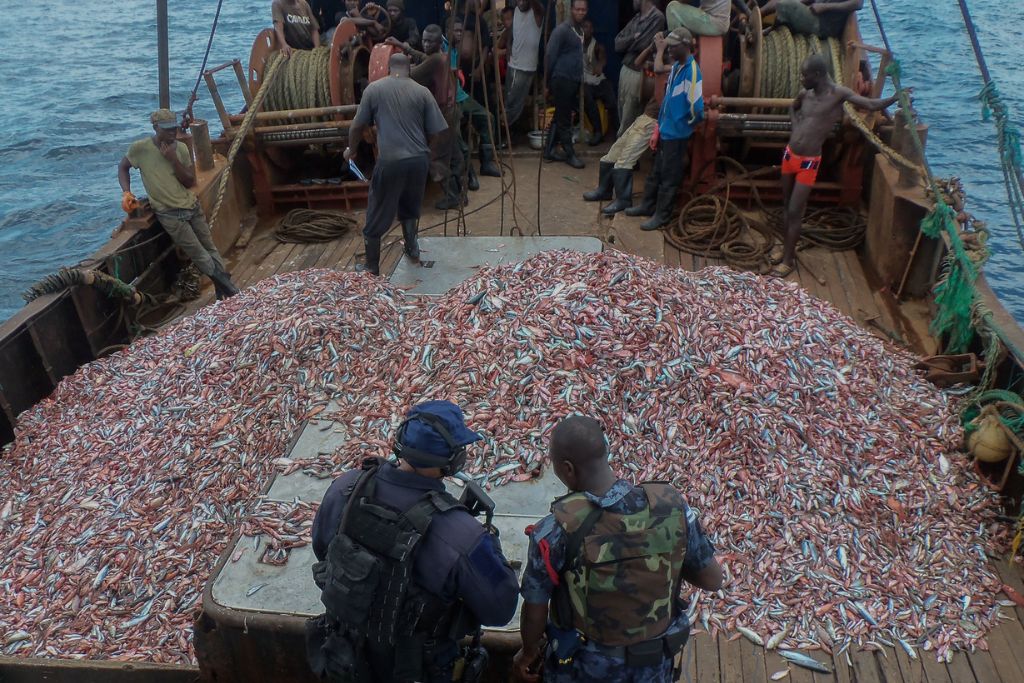
IUUF constitutes an existential threat to the livelihoods of the 520 million people who rely on fishing activities for a living and the 2.6 billion who depend on fish for their diet. As fish populations decline due to overfishing in prohibited areas, food supply chains for coastal communities are at risk. The environmental impacts and the depletion of fishery resources create a ripple effect on the catches and livelihoods of other fishers, too. By overexploiting fishery resources, IUUF adversely impacts responsible fishermen who comply with established regulations, ravaging local fisheries and jeopardizing small-scale fishermen’s incomes and food security.
Moreover, fishing on the high seas has expanded as coastal fish stocks dwindle, although sailing farther from shore significantly increases operating costs. IUUF vessels often seek to reduce costs by exploiting workers through forced labor, linking IUUF to other criminal activities. These also include document forgery, money laundering as well as human, drug, and wildlife trafficking.
IUUF, as it is usually the case with environmental crimes, takes advantage of poverty. Fishermen are drawn into IUUF activities in the absence of alternative income opportunities. Migrant workers are also highly vulnerable to IUUF operations. However, illegal fishing does not comply with international labor standards and sailors on IUU vessels are subjected to inhumane living and working conditions. Workers are frequently paid minimal wages, forced to work long hours with no concerns for safety, and given inadequate food and accommodation. A 2019 Greenpeace report on IUUF highlighted inhumane working conditions and modern slavery, with illegal acts including long working hours, withholding the wages of fishing crew, physical abuse, and sexual abuse.
Some IUUF operations are financed by fish wholesalers or moneylenders, leading fishermen into a cycle of debt and preventing them from abandoning IUUF activities. The reduction in available fish resources pushes IUU vessels to move away from the coast and spend more time at sea, which encourages human trafficking. Operators turn to human slavery to cut costs, forcing misled individuals to work for months or even years for very little money. The practice of transhipment at sea has compounded the problem, virtually turning these ships into floating prisons for indentured workers.
Fighting Illegal Fishing and Its Consequences
IUUF fishing has continued unchecked in Asia, wreaking havoc on the environment and ecosystems while endangering the food security and livelihoods of local populations, exacerbating conflicts and leading to numerous crimes and human rights violations. To address this persistent issue, comprehensive measures are needed, ranging from updated regulations to increased monitoring.
First, RFMOs should request that transhipment take place only at ports where authorities can oversee the exchange to uncover any illegal activity. The South East Atlantic Fisheries Organisation implemented this measure, setting a precedent for other RFMOs.
Second, to expand vessel transparency, all commercial fishing vessels should be mandated by the respective coastal and flag state governments and RFMOs overseeing their operations to continuously use an automatic identification system. This enables ships and traffic surveillance systems to determine vessels’ identity, status, location, and path in the navigation zone. Such regulations were established by the European Union, requiring fishing vessels longer than 15 meters to be equipped with, and constantly broadcast, an automatic identification system.
Third, before issuing a license or authorisation, the flag and coastal states should request information about the vessel’s leadership, operators, and owners. Together with RFMOs, these states must maintain publicly accessible, up-to-date vessel registers that include the vessel identity numbers, licenses, and ownership. In addition, countries should implement the Fisheries Transparency Initiative standard to ensure public access to information on fisheries laws and regulations.
Fourth, the International Labor Organisation (ILO), International Maritime Organisation (IMO), and RFMOs must collaborate to list vessels with a history of human rights violations, including forced labor practices and human trafficking. This list should be supplemented with vessel tracking data to improve enforcement and identify vessels that may require additional scrutiny.
Finally, flag states are responsible for enforcing fishing regulations, whether in the territorial waters of coastal states, in waters managed by an RFMO, or on the high seas. This role implies effective monitoring, developing a solid legal structure for prosecuting IUUF and exchanging information with countries and relevant organizations. Moreover, no fishing permits should be granted to vessels with track records of IUUF, human rights abuse, and labor violations.
Consequently, fighting IUUF and its environmental impacts necessitates implementing policies that increase transparency and deter illegal activities by governments. As IUUF thrives on opacity, facilitated by suspicious activities such as transshipping, remaining at sea for extended periods, gaps in vessel tracking, and port avoidance, ensuring greater transparency can prevent violations at sea, leading to more sustainably managed fisheries worldwide.
This story is funded by readers like you
Our non-profit newsroom provides climate coverage free of charge and advertising. Your one-off or monthly donations play a crucial role in supporting our operations, expanding our reach, and maintaining our editorial independence.
About EO | Mission Statement | Impact & Reach | Write for us




